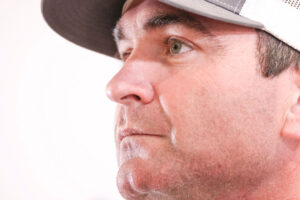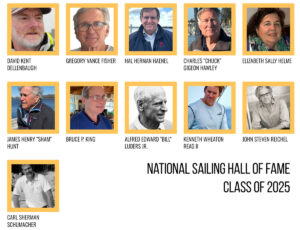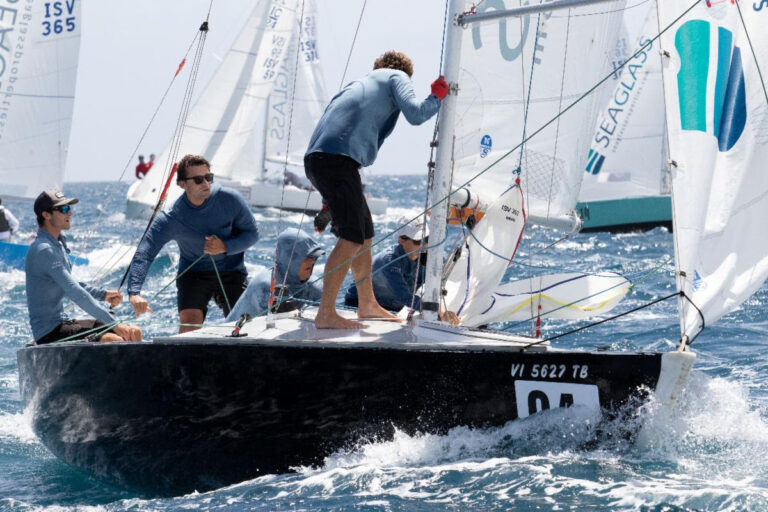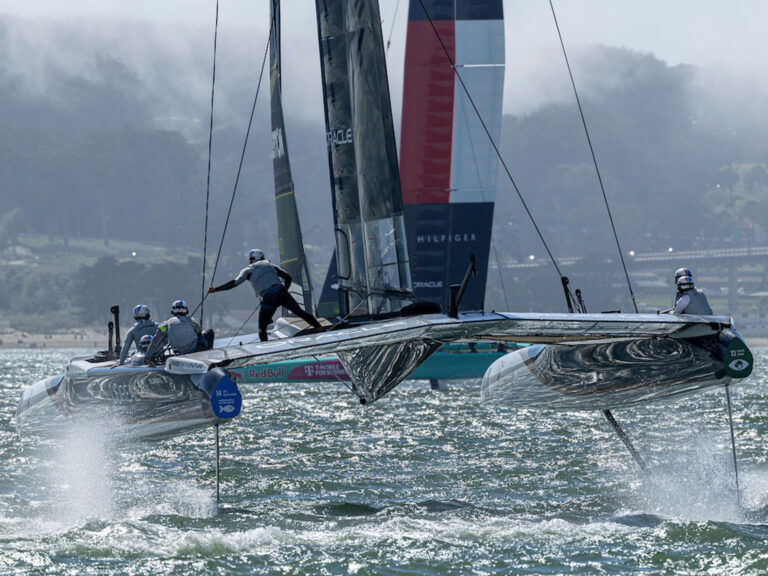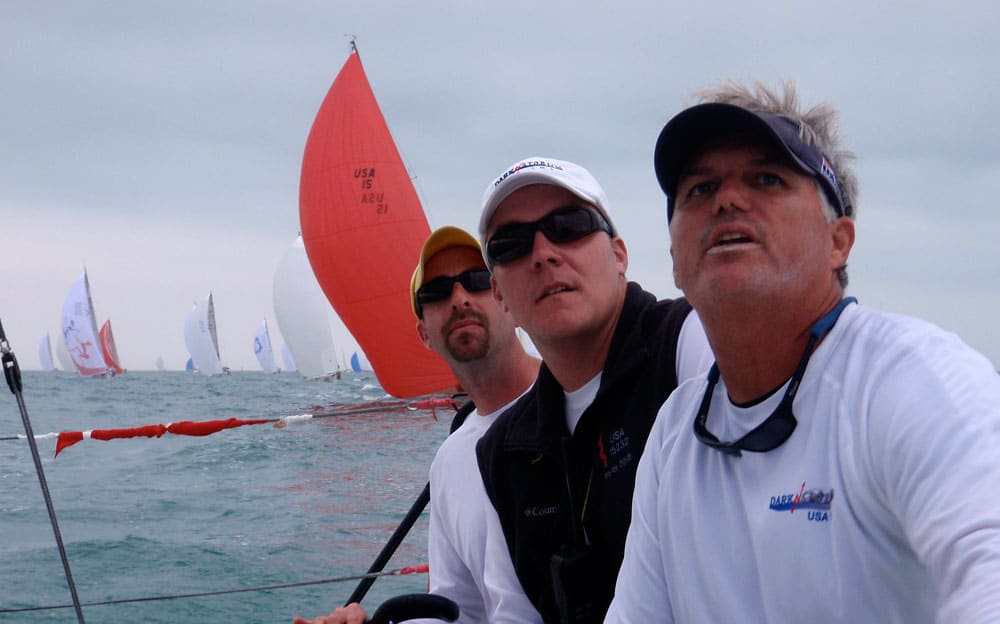
110128_KWRW_FinalRace
**A few years ago I interviewed the owner of a mid-sized offshore racing yacht **that had entered his boat in a long distance race despite the fact that he’d planned a vacation abroad at the same time. While most of us might see this as an either-or dilemma, this particular owner simply handed over his boat (and ample checkbook) to a gaggle of pro sailors and went on his vacation. They rewarded him with a line-honors win.
I found the situation fascinating. I wondered what it would be like to have enough money to pay for your boat to do something as expensive as a distance race even if you couldn’t be onboard. And what satisfaction would you feel should the boat do well in the race? On the flip side, what would it be like onboard without the owner? Would it be it similar to your parents rewarding you for a successful high school career by giving you the keys to the family RV, and a gas card? Or a high school science class where the regular teacher was sick and the substitute didn’t show up? “Hey what happens when you throw this magnesium powder onto a lit Bunsen burner?” “Wow, that was cool. Do it again!” Would success be easier or harder to achieve without the owner onboard?
While it’s rare for a keelboat boat to sail on without the owner, it’s far from unheard of. The owner of the J/24 I sail on every Thursday night usually takes a weeklong cruise each summer and leaves the crew to keep alive _Crack of Noon’_s never-miss-a-Thursday-night-race streak. We bicker over email about who should drive and who has to buy the beer. We talk about winning one for the skipper. The results have been mixed.
However, I’d never sailed without the owner in what I would consider a major regatta or race until the final day of Key West Race Week. The owner of the Melges 32 I sailed with had to jet back home for some family commitments. While I wouldn’t have been surprised if he’d simply called the regatta a day early, there never seemed to be any question that we would sail. An additional body was flown in from New York (in hindsight, this might’ve been overkill, there were plenty of capable bodies on the island that day), we shuffled the crew around a bit, and out we went for the final three races.
It was an interesting experience on many levels:
**1. Motivation: **This caught me by surprise, but as we sailed out to the course, I found myself wondering: what is pushing me to give 110 percent today? Our place in the regatta was fairly secure. While a strong day of finishes could provide something of a moral victory for the crew, I wondered how the skipper might ultimately react. Would he see it as an indictment of his skills? I used to watch “The West Wing” and I remember how members of the President Josiah Bartlet’s staff would always say that they “served at the pleasure of the president.” As corny as it sounds, I’ve tried to adapt that sentiment to big boat sailing. I am on the boat only because the owner wants me there. So for each day, I try to assess his (or her) goals and then try best to help the team achieve them. As we lined up for the first start on the final day of Key West 2011, I had a hard time figuring out exactly what those goals were, primarily because the owner was at 35,000 feet somewhere over Northern Florida. In the end I drew my motivation from two sources. Firstly, it’s Key West, possibly the last day of this fine institution. Why not go out with a bang. Secondly, there’s always something to be learned and carried forward to the next time the boat sails.
2. Leadership: The final day of the regatta was a light-air affair, and after three days of practice and four days of racing we were fairly automatic in our maneuvers. But the leadership for the day wasn’t ever clearly defined. Our tactician was the most obvious go-to guy, and he was our de facto skipper for the day. But he was as new to the program as the rest of us. What if it was really breezy? Who would make the call whether to hoist at the weather mark? Or to race in the first place? Perhaps more important than any potential specific incident was my general feeling of being slightly rudderless. With the owner on board, it was obvious where to turn for any key decision or to answer any question, such as, “What’s the upper limit on the A2 spinnaker?” Or, “Is that grinding sound in the winch normal?” In his absence the team hierarchy was less clear and the uncertainty weighed on my mind.
3. It’s harder than it looks: Spend any time in an owner/driver class and it’s only natural to think: “Geez, if only I were wealthy enough to own one of these boats, I’d clean up.” After all, the owner/driver rule has proven very popular in part because it restricts who can drive to those who can afford it, severely shrinking the talent pool for helmsmen. And often, those who can afford to own a boat like the Melges 32 haven’t spent their life sailing, nor have a lot of spare time to practice. However, expecting a better performance from a good amateur sailor (i.e. yourself) steering an unfamiliar boat is a mistake. It’s not as easy as it looks from the rail. Our pitman was a J/24 owner with plenty of helm experience and he struggled to keep the 32, and its razor-thin foils, in the groove. He had some moments of brilliance and some where we struggled. Off the line on the day’s second race we found ourselves to leeward and ahead of Samba Pa Ti, one of the faster boats in the fleet. For two minutes we were steadily closing gauge and moving forward. “Higher and faster,” was the call from the rail. Then, like a boxer clobbered by an unsuspecting roundhouse punch, we were neither. We didn’t stop at “Even and even” for a sip of coffee. Three minutes after the start Samba was bow even and a further few lengths to windward then they’d been before. Ouch. All of the sudden, I heard a familiar refrain echoing lightly through my head, “Ah, hell, I could do better than this.” Not likely. The toughest part for small boat sailors seems to be the ability to tune out all the other stuff to which you normally must pay attention—main trim, tactics, wind shifts or velocity increases, layline, the competition, what you brought for lunch—and simply focus on the telltales and the waves. It sounds easy, but the narrow focus needed on a big boat isn’t easily switched on without any prior practice.
After two disappointing races on the final day, we got lucky. We bounced around off the line, and due to a big left shift, quickly found ourselves out toward the port layline, with most of the fleet working the right side. Normally this would be an undesirable position, we had a lot of port tack left on the beat, and very little starboard. If the breeze went back right, we were hosed. If it went left, we’d be overstood. It did neither and courtesy of some extra velocity we cruised into the mark in fourth. The first run was 90-percent starboard. The second beat was a little frightening, but we held our position. The final run was a port-tack parade—the only key decision was to jibe around the offset mark—and we crossed the line in fourth, our only single-digit finish of the regatta.
Sure luck played a big role in the finish. But we also got around the course without any drama, no minor feat in any wind on the overpowered Melges 32. The second beat was rife with potholes, most of which we avoided. Our Sambuca (aka jibe or drag-around) set at the second windward mark was quite smooth. And our new helmsman started to find his touch at the wheel.
So we ended the week on a high note, which is always nice. On the way in we got a few attaboys from some of the better boats that had finished behind us. But even the sense of satisfaction that spurred us along as we cleaned up the boat was slightly hollow. The person who most deserved to enjoy it was 2,000 miles away.

